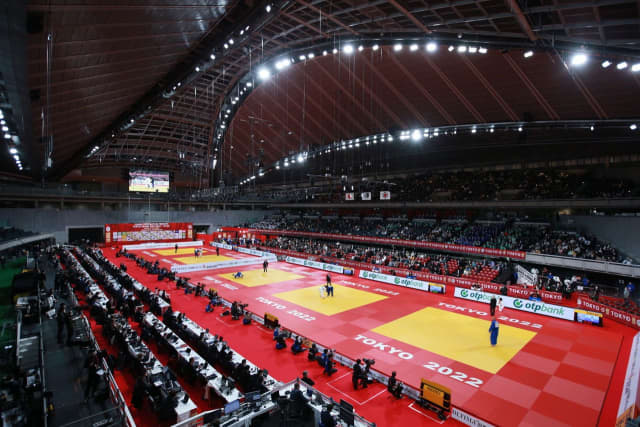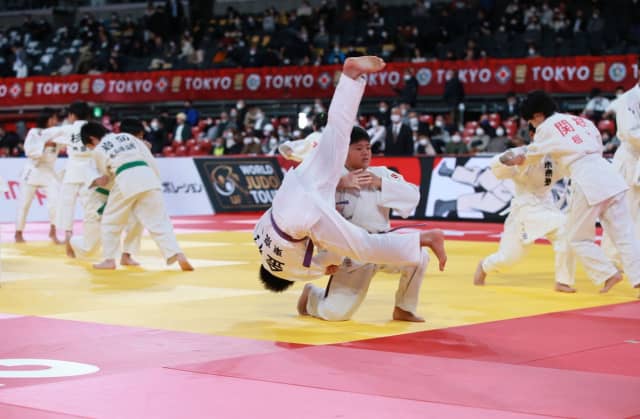By design, the organising country is entitled to four athletes per weight category. This is the case here in Japan now. This will also be the case for Portugal at the start of next season or for France at the beginning of February 2023 and so on. This allows national top players to position and assert themselves, while the others, younger and less experienced, gain confidence and prepare for the years to come.
For a long time, Japan has been placed at the top of the rankings, remaining a benchmark for world judo. This does not in any way prevent the other nations from shining and in this particularly high level context, the performances of non-Japanese judoka take on an even brighter lustre.
It should also be noted that at all times, obtaining a podium finish or even the title, in Tokyo was a milestone in the personal pantheon of each judoka. All the events of the circuit are equal, all awarding the same prize money and the same points. Winning in Japan, where it all began, remains a benchmark that no-one forgets. Talk to past champions and they'll all tell you the same thing: winning in Japan is special.
The depth of Japanese judo is impressive and a model for all countries. The capacity that the Land of the Rising Sun always has to regenerate and offer such a high standard is exemplary. Watching young children on the tatami performing a group nage-no-kaka before the final block guarantees that Japan maintains the flame of judo as a fantastic educational tool. The next generation is getting ready. The screening of the 'Forever Everest' documentary, featuring Sabrina Filzmoser, the Chair of the IJF Athletes' Commission and IJF Climate Ambassador, who successfully climbed Mount Everest in May this year, displayed a powerful message meant to help communities to build a better world.
High is also the level of organisation. Everything is regulated like clockwork. Everyone knows what to do and does it conscientiously and meticulously. This is also what we learn during the Grand Slam. There is no room for improvisation, except on the tatami, where the matches follow one another without anyone knowing their outcome in advance, but it is precisely this meticulous organisation, the result of close collaboration between the IJF, the AJJF, the Kodokan and all the partners, which allows the athletes to express themselves in the best possible way.
We will note and rejoice that the 2022 edition of the grand slam took place under almost normal conditions, after more than two years of pandemic. The protocols in place have been lightened, although they are still present and followed, guaranteeing the safety of all, which remains the top priority. This return to a certain normality is good, frees energy and allows us to look to the future with confidence.


